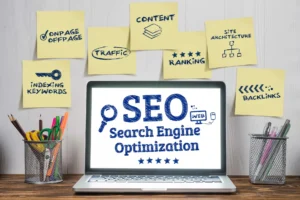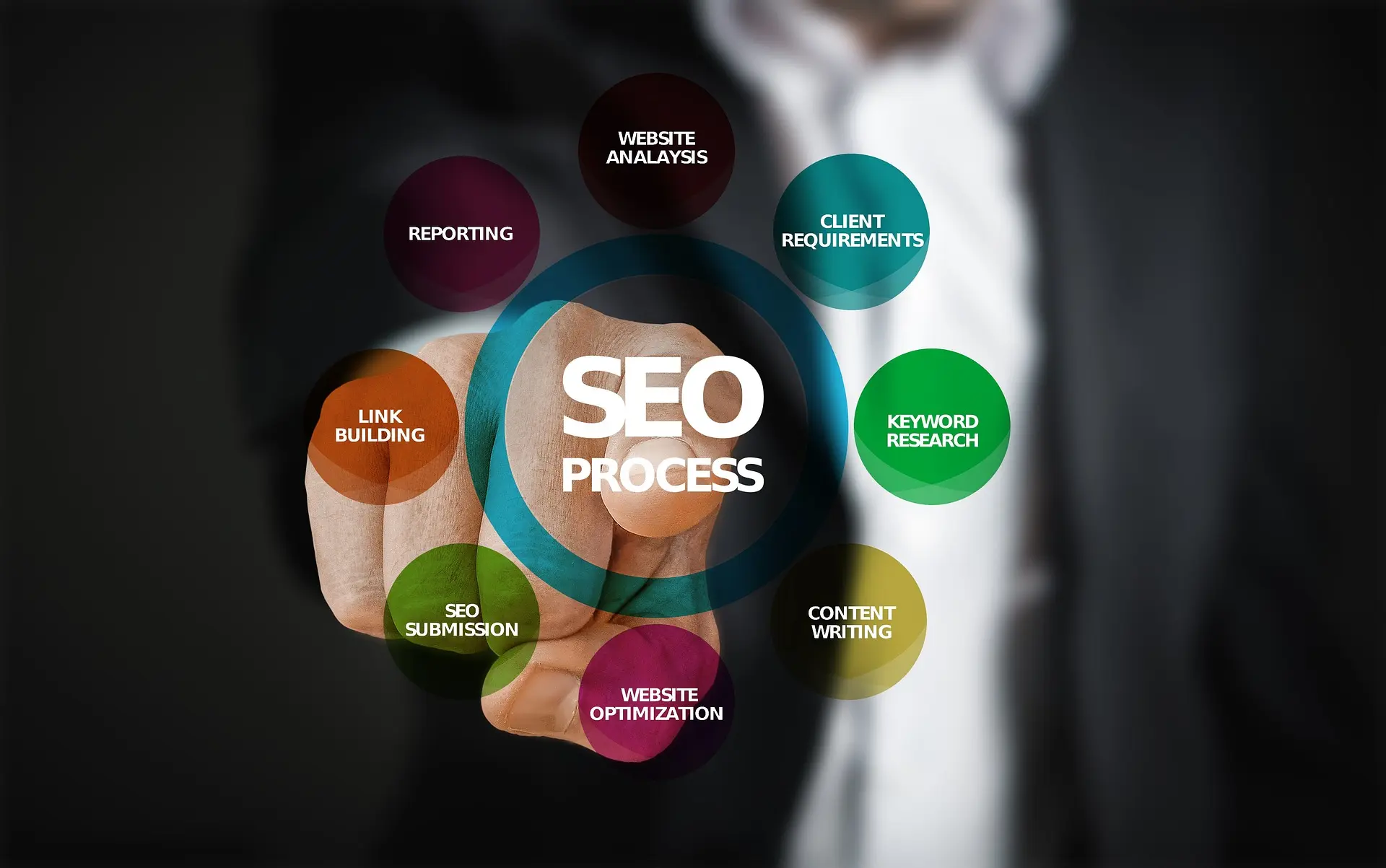In today’s digital landscape, standing out online is essential for any business or individual. One of the most powerful ways to achieve this is through SEO, or Search Engine Optimization. But what exactly is SEO, and how does it work? In this blog, we’ll break down the basics of SEO and why it matters for your online presence.
What is SEO?
SEO stands for Search Engine Optimization, the practice of optimizing your website or online content to improve its visibility on search engines like Google, Bing, and Yahoo. The goal is to appear higher in search engine results pages (SERPs) for specific keywords or phrases that your target audience is searching for.
Simply put, SEO helps search engines understand your content better so they can rank it higher when someone searches for related topics. The higher your website ranks, the more likely people are to find and visit it.
Why is SEO Important?
SEO is crucial because most people use search engines to find products, services, or information. When your website ranks higher in search results, you get more organic (unpaid) traffic, which can lead to more customers, inquiries, or conversions. Here are a few key reasons why SEO is important:
- Increased Visibility: Ranking higher on SERPs increases the chances that potential customers will see your website.
- Credibility and Trust: People tend to trust websites that appear at the top of search results. SEO helps build that trust.
- Cost-Effective Marketing: Unlike paid ads, SEO generates free traffic, making it one of the most cost-effective marketing strategies.
- Improved User Experience: Good SEO practices improve your website’s overall user experience, making it easier for visitors to navigate and find what they need.
How Does SEO Work?

Search engines like Google use algorithms to analyze and rank websites based on several factors. These algorithms look at hundreds of ranking factors, but they can generally be grouped into three main categories:
1. On-Page SEO
On-page SEO involves optimizing the content and HTML source code of your website. Key elements include:
- Keyword Optimization: Using relevant keywords in your content, titles, and meta tags helps search engines understand what your page is about.
- Content Quality: High-quality, informative, and engaging content is crucial. The more valuable your content is to users, the more likely it is to rank higher.
- Meta Tags and Descriptions: These are snippets of text that describe your page’s content to search engines. Well-written meta descriptions can improve click-through rates.
2. Off-Page SEO
Off-page SEO refers to actions taken outside of your website to impact your rankings, primarily through building backlinks. Backlinks are links from other websites to your own, signaling to search engines that your site is credible and authoritative. The more high-quality backlinks you have, the better your SEO.
3. Technical SEO
Technical SEO focuses on optimizing the backend of your website to help search engines crawl and index your pages more effectively. This includes:
- Site Speed: A fast-loading website provides a better user experience and is favored by search engines.
- Mobile Friendliness: With more people browsing on mobile devices, having a mobile-friendly website is essential for SEO.
- Security: Websites with HTTPS (secure) encryption are given priority in search engine rankings.
The Different Types of SEO
SEO is often broken down into several types, depending on what you’re optimizing for:
- Local SEO: Optimizing your website for local searches to attract customers in your area. For example, if you run a restaurant, you’ll want to rank for “best restaurant near me.”
- E-commerce SEO: Focuses on optimizing online stores to rank higher in search results, bringing more traffic and potential buyers to your products.
- Voice Search SEO: As more people use voice assistants like Siri or Alexa, optimizing for voice search queries is becoming increasingly important.
How Long Does SEO Take?
SEO is a long-term strategy, and results don’t happen overnight. It usually takes several months to see significant improvements, depending on the competitiveness of your industry, the keywords you’re targeting, and the quality of your SEO efforts. However, once you achieve higher rankings, you can enjoy lasting benefits, as long as you keep up with SEO best practices.
Conclusion
SEO is the backbone of a successful online presence. By optimizing your website for search engines, you improve your visibility, attract more visitors, and ultimately grow your business. While SEO can seem complex, focusing on the basics of on-page, off-page, and technical optimization is a great place to start.
Whether you’re a business owner, a blogger, or someone looking to build an online presence, SEO is an essential tool for achieving your goals in the digital world.
If you’re interested in learning more about how SEO can help your website or business, feel free to explore the latest SEO tips and trends on the Md Moniruzzaman Blog!

